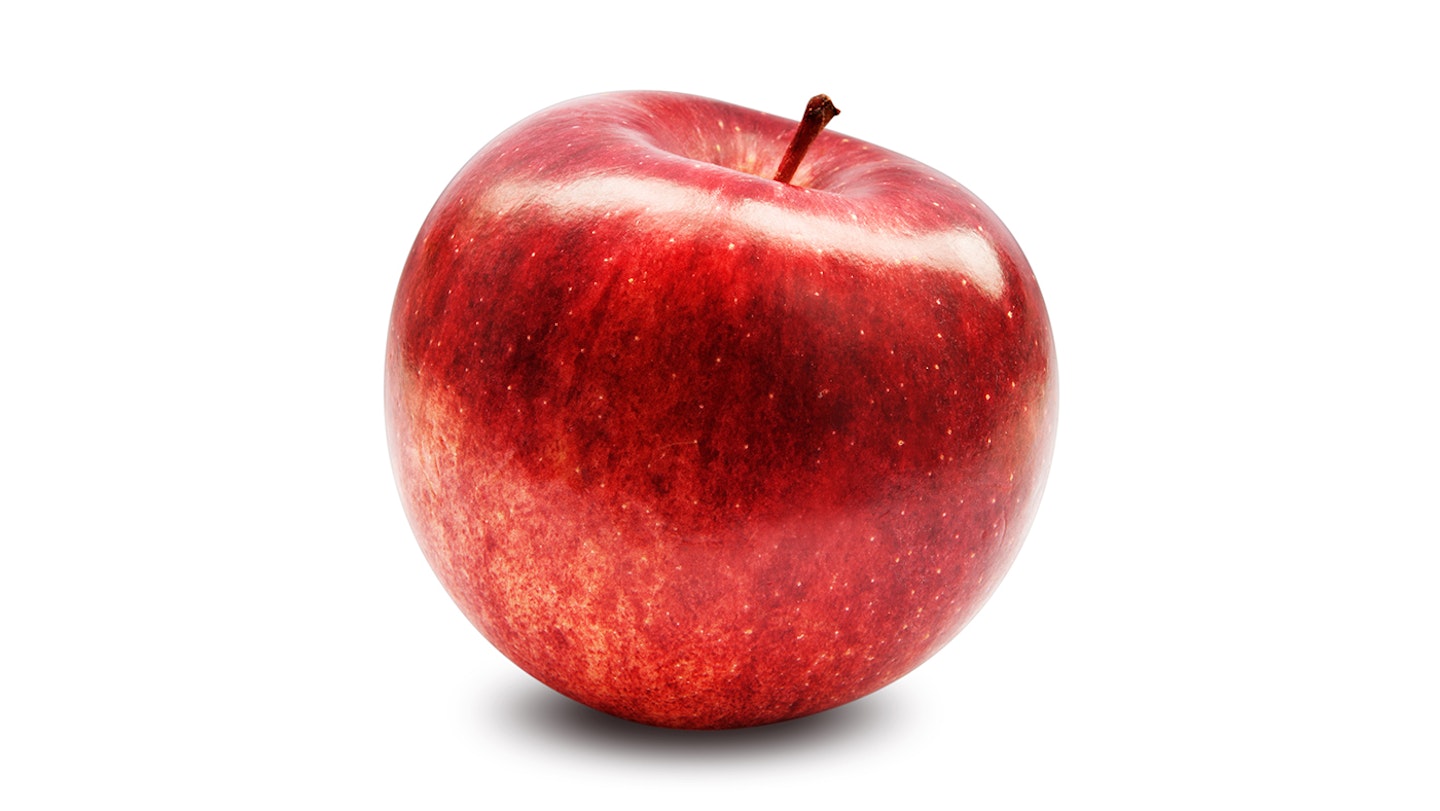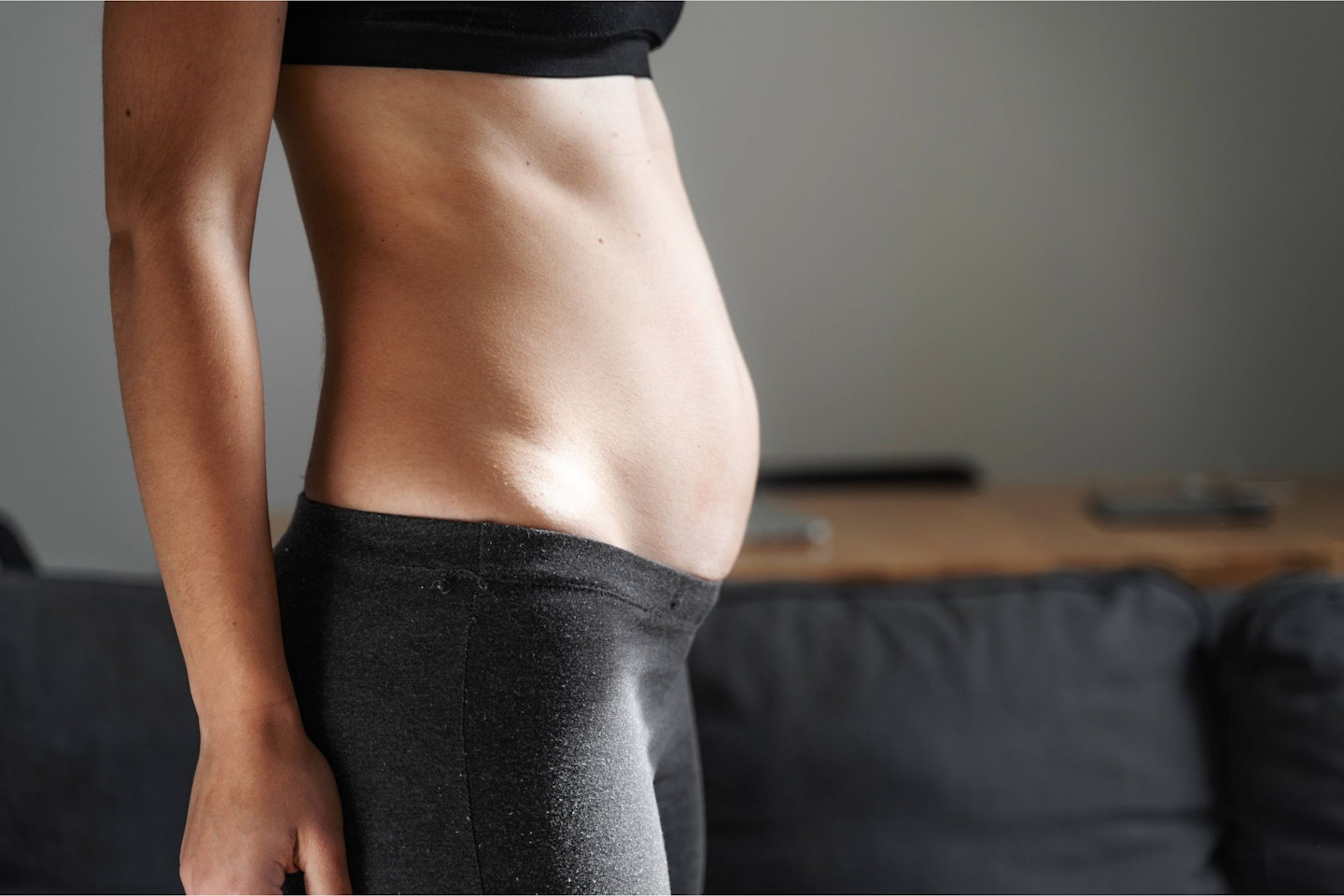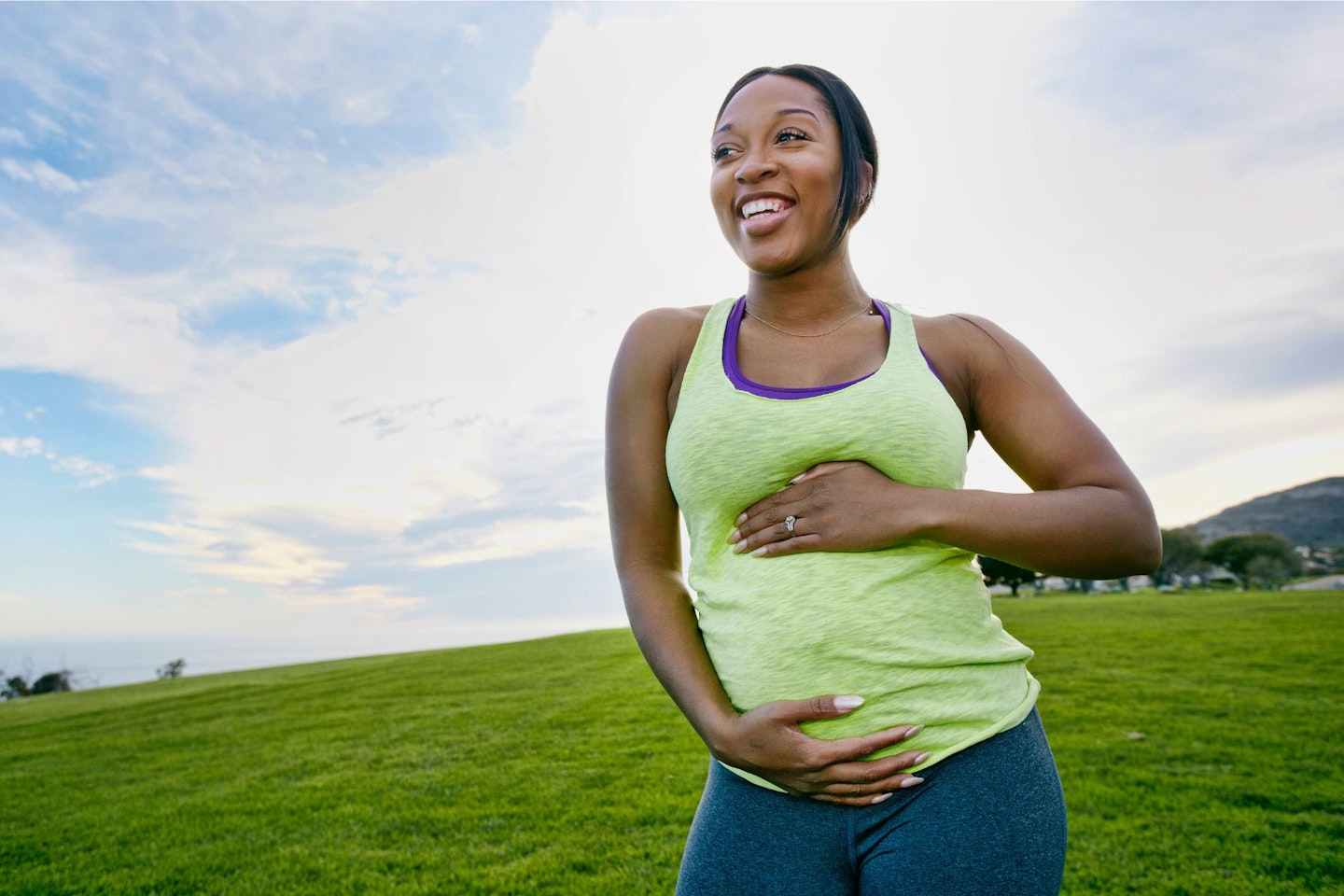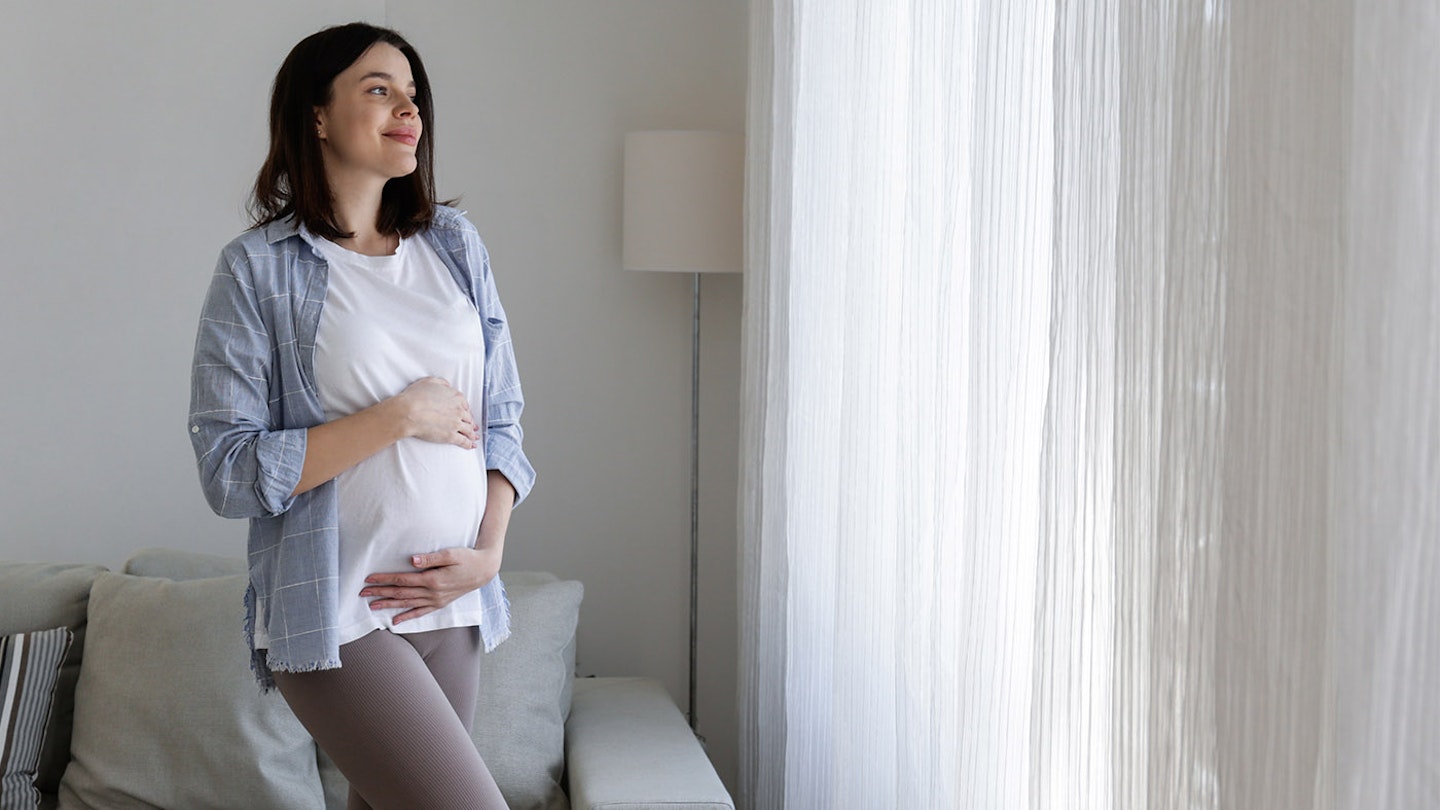At 14 weeks pregnant, you're now in your fourth month of pregnancy. This means you're at the start of your second trimester which is a real pregnancy milestone. With any luck you might find that some of the first trimester symptoms like morning sickness are easing and you should have more energy, as well as a cute baby bump! Your baby is going through its own development, with some truly exciting milestones reached this week and in pregnancy week 15.
To find out more about what to expect at 14 weeks pregnant, we've spoken to Registered Midwife, Malena Monteverde from My Expert Midwife so read on to find out all you need to know about what your baby and your body are doing at 14 weeks pregnant.
What’s my baby doing at 14 weeks pregnant?
At 14 weeks pregnant, your baby's body is now growing more rapidly than their head, and their arms and neck are getting longer, making your baby look more like a little person. At 14 weeks, your little one could be growing some hair, although their hair colour might not be determined until birth and their eyebrows are filling in. At this stage, your little one will also have hair all over their body called lanugo, which helps keep them warm. Luckily, this will disappear later in pregnancy, once they get some more body fat.
Around now, your growing baby will have its first wee! As they start to swallow little bits of amniotic fluid, they will pass into their stomach. The kidneys will start to work and the swallowed fluid will pass back into the amniotic fluid as urine. Although they get all the oxygen they need via the umbilical cord, at week 14, your baby will start to practise their breathing – an important skill for when they're born!
Other developments this week include the forming of the roof of your baby’s mouth, and the intestines will start to produce meconium – this is the substance that makes those first few nappy changes black and tar-like.
How big is my baby at fourteen weeks pregnant?
Your baby is now about 8.5cm long, about the same size as an apple.

What will my week 14 pregnancy bump look like?
Good news, you’ll probably get the first signs of a baby bump this week! Your uterus is rising out of the pelvic region and up into your abdomen. "Your midwife – and you! - should be able to feel the top of your womb just above your pubic bone, as it is now rising out of the pelvis. This means that there is now less pressure on your bladder (although that returns again later!) which translates into less trips to the loo!" commented midwife, Malena.

Don't worry if your belly is not yet showing. Every body is different and we all show at different times.
Can you feel baby move at 14 weeks?
You probably still won’t be able to feel any movement at week 14, but by now, your baby is moving constantly. The movements are now much smoother and more fluid compared to the early jerky movements we mentioned a few weeks ago. "Despite them moving almost non-stop, though, you’ll still have to wait some weeks to feel anything – with most first-time mums feeling movements between 20-24 weeks and as early as 16 weeks for women having subsequent pregnancies" Malena said.
14 weeks pregnant symptoms
Catching a cold
Just when a few of your symptoms started to ease off, the second trimester brings a whole host of new ones to worry about! One of these is being more susceptible to colds and flu. At the moment, your immune system is weaker, but this is a good thing as it stops your body from rejecting your foetus. On the other hand, this makes you more likely to pick up bugs, so be sure to wash your hands and carry hand sanitiser wherever you go. If you do feel like you are coming down with something, get in touch with your GP as soon as you can.
Varicose veins
These are large, swollen blood vessels which show up on your legs. Although they might not look too nice, they are caused by the extra blood your body is producing to look after your baby. Minimise the appearance of Varicose veins by keeping the blood circulating around your body by walking throughout the day.
Breast changes
While your breasts might be finally feeling less tender, they are still growing and you're likely to notice your breasts changing throughout pregnancy. It’s totally normal for your areolas to darken and your nipples to look different. Now might also be a good time to invest in a maternity bra to keep them comfy.
Round ligament pain
For some women, around this time of their pregnancy, they’ll experience round ligament pain. "Round ligament pain may feel achy, like ‘tugging’ or, often, like a jabbing or sharp pain on one of both sides of your abdomen or groin area", says Malena. This is normal and is caused by the ligaments supporting your womb stretching and thinning out to accommodate the increasing weight. You’ll probably only notice it when you’re getting up, stretching or twisting and the best way to get some relief is by putting your feet up in a comfortable position. As Marlena told us, "the ‘good thing’ about round ligament pain is that it is short lived and tends to disappear as quickly as it came." However, if you are experiencing abdominal pain or cramps and are unsure if they are caused by the stretching of the round ligament, make sure to call your midwife or maternity unit.
Lower back pain

At 14 weeks, lower back pain can still be a pregnancy symptom, caused by the softening and stretching of your ligaments that prepare the body for labour but also then put more strain on the muscles and joints. The NHS advice for back pain in pregnancy includes remembering to bend at the knees if lifting anything, avoid lifting heavy items, and move your feet if you need to turn to avoid twisting your spine. You could also consider getting a Tens Machine which can also help out in labour.
Stuffy nose
The high levels of oestrogen and progesterone cause the mucous membranes in the body (including the nose) to swell and soften. This can leave you with a stuffy nose in pregnancy, but rest assured, it’s normal.
Headaches
Unfortunately, it's also common to get headaches in pregnancy at 14 weeks. While they're one of the early pregnancy symptoms, you might still be experiencing them at 14 weeks. Paracetamol can help and remember to stay hydrated as they can be caused by dehydration. If they're severe or accompanied by other symptoms, they could be a sign of pre-eclampsia so check with your GP or midwife.
Increased appetite
Now you’ve stopped feeling so sick, you feel constantly hungry. Remember to continue with a healthy diet throughout your pregnancy. Avoid binging on sugary snacks, no matter how much your baby is craving them! Malena suggests "protein and calcium rich foods like lean meat, poultry, fish and dairy, eggs, nuts, sardines, and calcium-fortified plant milks are an excellent choice now, as your baby’s bones, muscles and tissues are developing day by day. But they also help you to stay strong and healthy during pregnancy and beyond."
Swelling
Swelling in the legs, ankles and feet is caused by the increased blood in your bloodstream. You might notice your rings feel tighter and your legs and ankles look like you’ve been on a long-haul flight. Now is not the time to do a Kim Kardashian – ditch those uncomfortable strappy shoes or heels. If you can, avoid standing for too long and try to raise your feet above your heart for at least an hour a day.
What is my body doing at 14 weeks pregnant?
There's a reason the second trimester is also known as the honeymoon period of pregnancy! This is the time most pregnant women enjoy the most and there are a few reasons why. You’ll probably feel a bit more like your pre-pregnant self, the morning sickness should have eased off and your breasts (hopefully) aren’t quite as tender. Your energy levels should be returning too and in turn, so should your appetite.
Even better, this week, you’ll probably start noticing that cute baby bump has started showing. Your uterus is finally rising out of the pelvic region and into your low abdomen. You’ll have started producing more blood from the beginning of your pregnancy, but from around now, there’ll be more blood cells as well as fluid in the bloodstream.
You may have also noticed some yellow stains in your bra - this is nothing to worry about and is just colostrum which is the first form of milk you will produce.
Is it normal to gain weight at 14 weeks pregnant?
Yes, in fact, your weight gain will really kick off during this trimester. While you might have had no weight gain at 14 weeks pregnant, it's likely that you'll start to gain more pounds during the second trimester. It’s normal to gain as much as four pounds a month for the remainder of your pregnancy.
Things to think about at 14 weeks pregnant

Book that pregnancy fitness class: Hopefully, the start of trimester two will bring that boost in energy we’ve been talking about for the past few weeks. If you feel up to it, take advantage and sign up to a pregnancy fitness class.
Do those pelvic floor exercises: Your pelvic floor is the muscles that support your bladder, bowel and womb. Now you have a growing baby, the extra weight puts pressure on those muscles, so it’s vital that you do pelvic floor muscles to ensure they remain strong. Malena notes that "a strong pelvic floor will help to avoid incontinence during and after pregnancy, help in the birth of your baby and, in the future, reduce the risk of incontinence and prolapse when you are older." So make the exercises part of your daily routine - as she says, "it can take a little practice to get the hang of them but, once you do, you can do them anywhere without anyone noticing – queueing at the supermarket, driving, boiling the kettle, watching telly... literally, anywhere."
Now's the time to tell work if you haven't already: Many women will wait until around 12 weeks when they've had their 12-week scan to tell their employer about their pregnancy. Make sure you're aware of your maternity rights and it's a good time to ask for extra support if you need it.
Avoid alcohol, smoking and caffeine: Try your best to give up smoking and alcohol and go easy on the caffeine (it's recommended by the NHS that you don't have more than 200mg of caffeine each day during pregnancy). If you haven't managed to quit smoking yet, now's the time. "Evidence shows that quitting smoking before 15 weeks of pregnancy reduces the risk of premature birth and low birth weight to that of a non-smoker" says midwife Malena.
Take care of yourself: Lastly, check in with yourself. Although moments of worry, stress and sadness are normal, having these feelings all or most of the time would indicate a need to seek support. "If you experience repetitive unpleasant thoughts, find yourself engaging in repetitive activities to make you feel better, or experience physical symptoms with your anxiety, make sure to reach out to your midwife, GP or local mental health services for support" says Malena. "Your mental health is just as important as your physical health, which is why being open and talking to people who can help you address any problems that arise is essential."
About the expert
Malena Monteverde is a registered Midwife specialising in pregnancy, wellbeing and mindfulness and breastfeeding. Starting her midwifery training in 2001, Malena worked on a Labour Ward for approximately 10 years and in the community for another seven years.
Stephanie Spencer is the Deputy Digital Editor at Mother&Baby and auntie to four aged 8 to 6 months old. With a particular interest in health, she loves discovering products that make parent’s lives easier.
